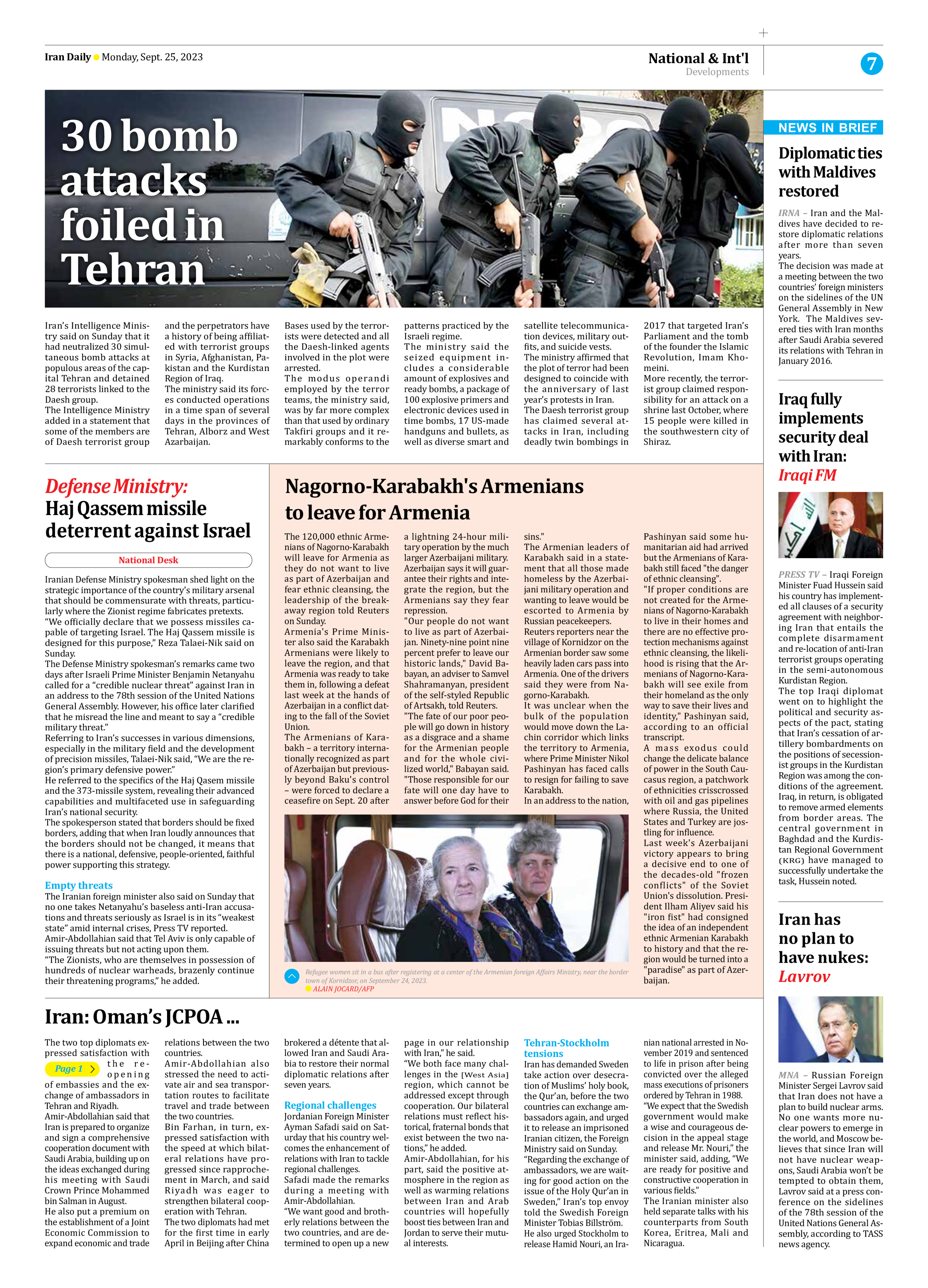
Nagorno-Karabakh’s Armenians to leave for Armenia
The 120,000 ethnic Armenians of Nagorno-Karabakh will leave for Armenia as they do not want to live as part of Azerbaijan and fear ethnic cleansing, the leadership of the breakaway region told Reuters on Sunday.
Armenia's Prime Minister also said the Karabakh Armenians were likely to leave the region, and that Armenia was ready to take them in, following a defeat last week at the hands of Azerbaijan in a conflict dating to the fall of the Soviet Union.
The Armenians of Karabakh – a territory internationally recognized as part of Azerbaijan but previously beyond Baku's control – were forced to declare a ceasefire on Sept. 20 after a lightning 24-hour military operation by the much larger Azerbaijani military.
Azerbaijan says it will guarantee their rights and integrate the region, but the Armenians say they fear repression.
"Our people do not want to live as part of Azerbaijan. Ninety-nine point nine percent prefer to leave our historic lands," David Babayan, an adviser to Samvel Shahramanyan, president of the self-styled Republic of Artsakh, told Reuters.
"The fate of our poor people will go down in history as a disgrace and a shame for the Armenian people and for the whole civilized world," Babayan said. "Those responsible for our fate will one day have to answer before God for their sins."
The Armenian leaders of Karabakh said in a statement that all those made homeless by the Azerbaijani military operation and wanting to leave would be escorted to Armenia by Russian peacekeepers.
Reuters reporters near the village of Kornidzor on the Armenian border saw some heavily laden cars pass into Armenia. One of the drivers said they were from Nagorno-Karabakh.
It was unclear when the bulk of the population would move down the Lachin corridor which links the territory to Armenia, where Prime Minister Nikol Pashinyan has faced calls to resign for failing to save Karabakh.
In an address to the nation, Pashinyan said some humanitarian aid had arrived but the Armenians of Karabakh still faced "the danger of ethnic cleansing".
"If proper conditions are not created for the Armenians of Nagorno-Karabakh to live in their homes and there are no effective protection mechanisms against ethnic cleansing, the likelihood is rising that the Armenians of Nagorno-Karabakh will see exile from their homeland as the only way to save their lives and identity," Pashinyan said, according to an official transcript.
A mass exodus could change the delicate balance of power in the South Caucasus region, a patchwork of ethnicities crisscrossed with oil and gas pipelines where Russia, the United States and Turkey are jostling for influence.
Last week's Azerbaijani victory appears to bring a decisive end to one of the decades-old "frozen conflicts" of the Soviet Union's dissolution. President Ilham Aliyev said his "iron fist" had consigned the idea of an independent ethnic Armenian Karabakh to history and that the region would be turned into a "paradise" as part of Azerbaijan.







